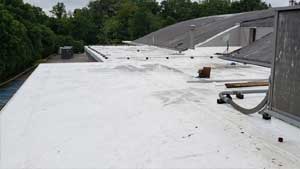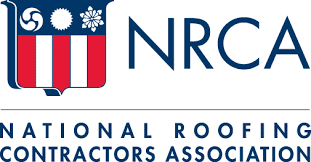PVC Roofing offers a lot of advantages
These days, there are various roofing options available for your home, but the one that is gaining a lot of popularity is PVC roofing. PVC has been around for over 150 years. It has been used in the manufacturing industry for a long time, but as a roofing material, it is a relatively new entrant.
Polyvinyl chloride or PVC roofing is made out of two layers of durable and flexible PVC material. A layer of polyester is laid in between for additional reinforcement. It also contains some additives to enhance its UV stability and flexibility and to prevent curing and warping. An acrylic coating is applied for reflectiveness and to repel dust and dirt. No wonder it is a great choice for a roofing material for your home or commercial building. Here are some of the key benefits of PVC roofing:
Durability
PVC roofing material is designed with durability in mind. It is engineered for strength. Its high-quality material is resistant to shock, weathering, corrosion, abrasion, rotting, and other types of damage. Most PVC roofs can last as long as 20 years without requiring much maintenance.
The American Society of Testing and Materials requires a minimum breaking strength of 200 pounds per inch for PVC roofing membranes. However, some membranes have an even higher strength. So, it can withstand elements such as strong winds easily. Also, the hot-air welded seams make the roofing even stronger and resistant to moisture. These seams form a watertight bond that is even stronger than the material itself.
Chemical resistant
If you are looking for roofing for your commercial building such as a warehouse or manufacturing facility, you would want the roof to be able to withstand a significant amount of exposure to chemicals. Compared to other roofing materials such as asphalt, PVC is highly resistant to chemical damage. So, it makes a great choice for such buildings.
Fire and wind resistant
As we said earlier, the welded seams of PVC roofing make it highly wind resistant. They can withstand even Category 3 hurricanes. So, it makes a great choice for areas that are prone to strong winds and storms. Also, PVC membranes do not easily catch fire as they are highly resistant to oxidation reactions and fire. With PVC roofing, you can improve your building’s protection from fire and winds.
Better energy efficiency
PVC roofing membranes are known to have high solar reflectivity, so they can help bring down your energy consumption. It can help you save significantly on your annual utility bills. PVC roofing can improve your roof’s insulation performance by 25-50 percent. So, you don’t only save on energy bills, but you also enjoy better comfort inside your home. In these times, that is a huge plus.
Is it the right choice for your home?
There are no major downsides to PVC roofing. The only drawback is that it is slightly more expensive than typical membrane roofing. However, considering all the benefits such as reliability, strength, durability, resistance to wind, fire, and chemicals, and environmental friendliness, the slightly higher upfront cost is completely worth it.
If you are in the process of choosing new roofing for your home or commercial building, you should consider PVC roofing. It is best to discuss all the options with your roofing contractor and seek their advice before making a choice.
Get in touch with our roofing experts to know how PVC roofing will work for you. With years of experience behind us, we can make the right recommendations based on your requirements and budget.




